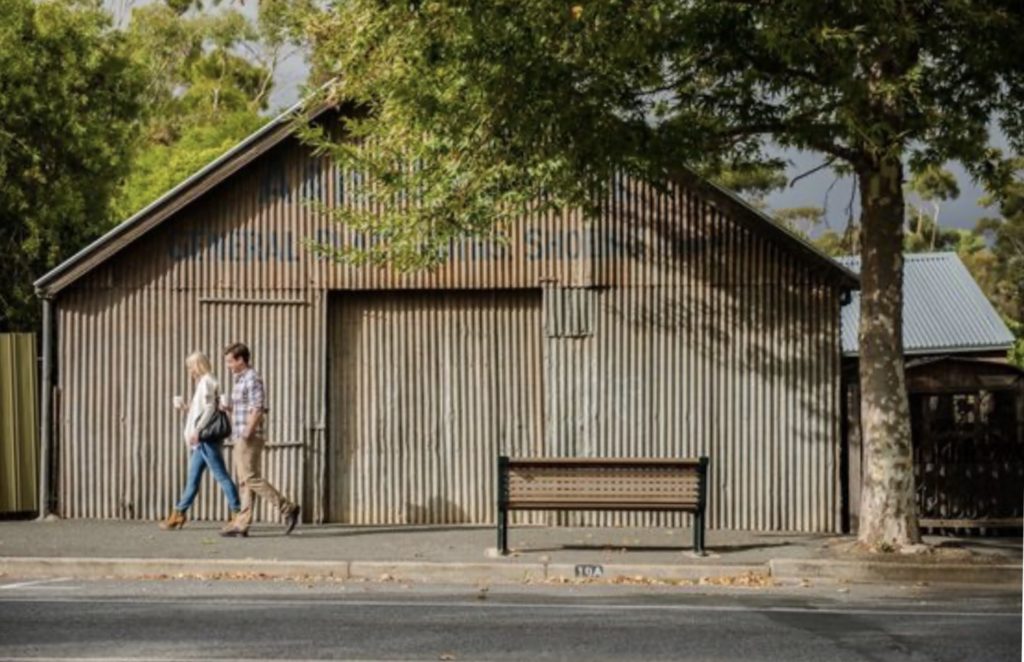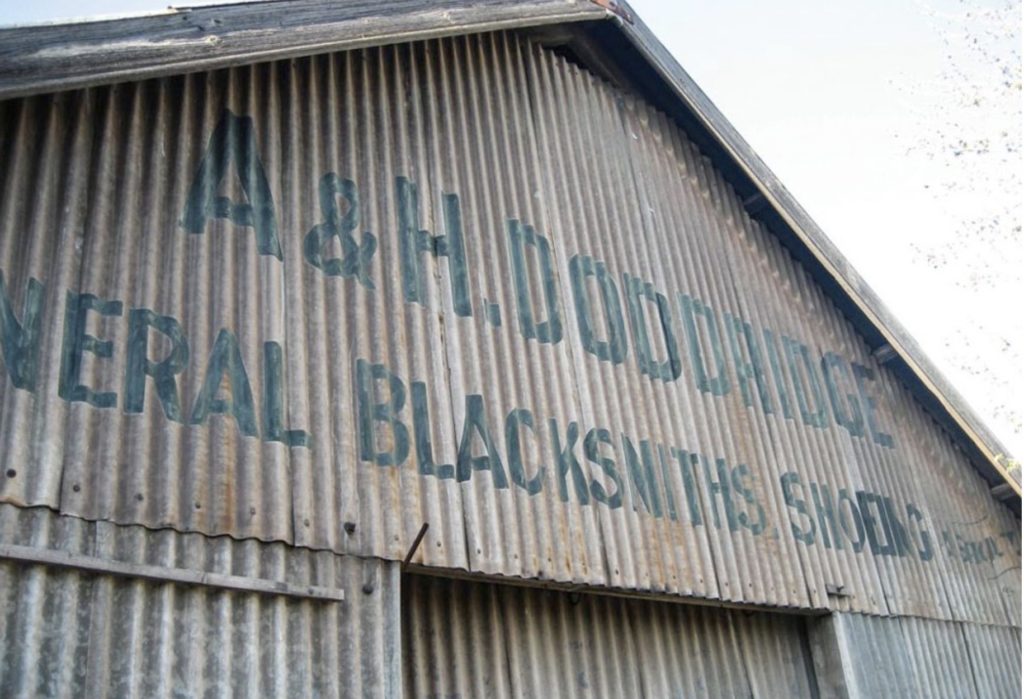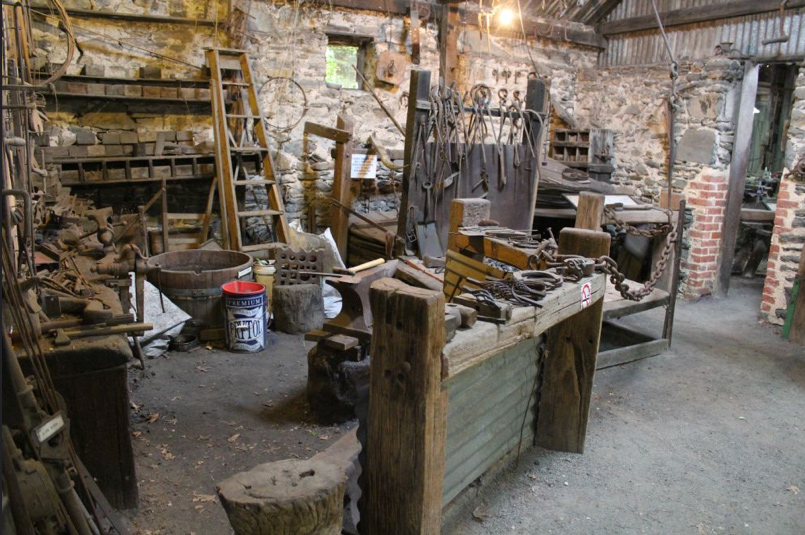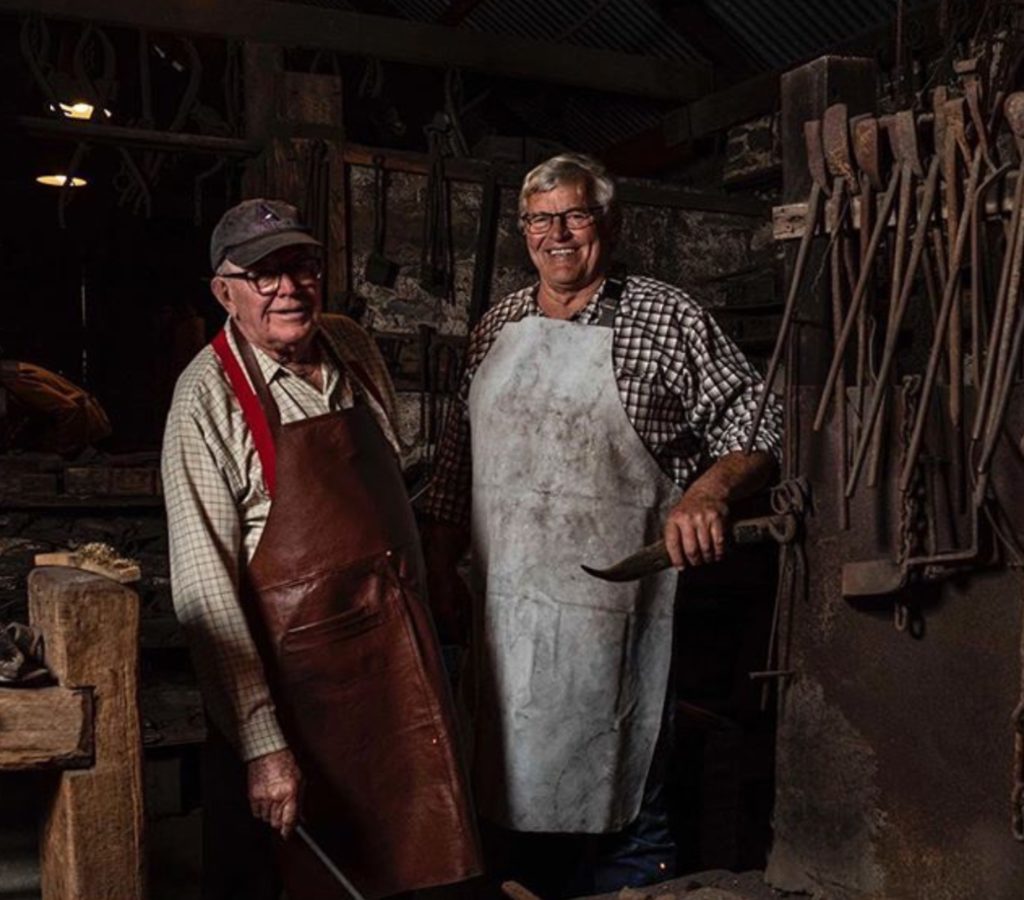I don’t know whether or not that’s actually a chestnut tree spreading over the entrance of the Barossa blacksmith shop, but it would truly be poetic justice if it is.
My eighth grade teacher, Mr. Carson Finch, made us memorize a lot of different poems and one I can still quote most of today is The Village Blacksmith by Henry Wadsworth Longfellow. (Isn’t the brain a strange organ? I can also recite the first few lines of Abou Ben Adhem by Leigh Hunt and In Flanders Fields by John McCrae.)
But enough about Carson Finch and the poetry with which he tormented us. The point is that Angaston still has a blacksmith shop a hundred years after automobiles became the dominant mode of transportation. Sure, these days it’s more museum and tourist stop than actual operating blacksmith shop, but nevertheless, they’re still making horseshoes and branding irons right there on Angaston’s main street.
(The entire text of The Village Blacksmith can be found below the photos.)




“The Village Blacksmith“
Under a spreading chestnut-tree
The village smithy stands;
The smith, a mighty man is he,
With large and sinewy hands,
And the muscles of his brawny arms
Are strong as iron bands.
His hair is crisp, and black, and long;
His face is like the tan;
His brow is wet with honest sweat,
He earns whate’er he can,
And looks the whole world in the face,
For he owes not any man.
Week in, week out, from morn till night,
You can hear his bellows blow;
You can hear him swing his heavy sledge,
With measured beat and slow,
Like a sexton ringing the village bell,
When the evening sun is low.
And children coming home from school
Look in at the open door;
They love to see the flaming forge,
And hear the bellows roar,
And catch the burning sparks that fly
Like chaff from a threshing-floor.
He goes on Sunday to the church,
And sits among his boys;
He hears the parson pray and preach,
He hears his daughter’s voice
Singing in the village choir,
And it makes his heart rejoice.
It sounds to him like her mother’s voice
Singing in Paradise!
He needs must think of her once more,
How in the grave she lies;
And with his hard, rough hand he wipes
A tear out of his eyes.
Toiling,—rejoicing,—sorrowing,
Onward through life he goes;
Each morning sees some task begin,
Each evening sees it close;
Something attempted, something done,
Has earned a night’s repose.
Thanks, thanks to thee, my worthy friend,
For the lesson thou hast taught!
Thus at the flaming forge of life
Our fortunes must be wrought;
Thus on its sounding anvil shaped
Each burning deed and thought.
-Henry Wadsworth Longfellow
The only one I remember starts with “There once was a man from Nantucket “
Hah!
The Barossa is rather a quaint part of Aussie